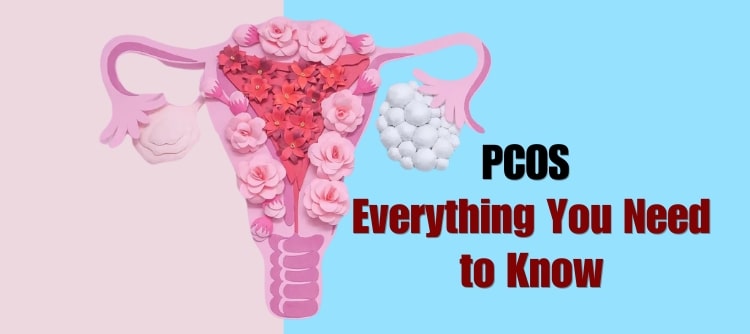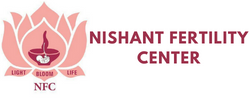PCOS Everything You Need to Know

Polycystic Ovary Syndrome (PCOS) is a common yet often misunderstood condition that affects many women worldwide. This complex disorder involves hormonal imbalances and a range of symptoms that can impact a woman’s reproductive, metabolic, and cardiovascular health. In this comprehensive guide, we will delve into the depths of PCOS, exploring its definition, symptoms, fertility treatment, and the underlying causes that contribute to its development.
What is PCOS?
Polycystic Ovary Syndrome is a hormonal disorder that primarily affects women of reproductive age, typically between the ages of 15 and 44. The condition is characterized by a variety of symptoms, including irregular menstrual cycles, cysts on the ovaries, and elevated levels of androgen hormones. The exact cause of PCOS remains elusive, and its manifestation can vary widely among individuals.
Symptoms of PCOS:
Irregular periods: Women with PCOS often experience irregular menstrual cycles, including missed periods or prolonged cycles.
Ovulatory dysfunction: PCOS can disrupt the normal ovulation process, leading to fertility issues.
Hyperandrogenism: Elevated levels of androgen hormones can cause symptoms such as acne, hirsutism (excessive hair growth), and male-pattern baldness.
Polycystic ovaries: The ovaries may contain small cysts, which are actually follicles that have not matured properly.
What Causes PCOS?
The precise cause of PCOS remains multifactorial and is not fully understood. Several factors, however, contribute to its growth:
Genetics: There is evidence to suggest a genetic component, as women with a family history of PCOS are more likely to develop the condition.
Insulin Resistance: Insulin resistance, a condition where the body’s cells do not respond effectively to insulin, is common in women with PCOS. This can lead to elevated insulin levels, contributing to hormonal imbalances.
Hormonal Imbalances: PCOS is associated with an imbalance in sex hormones, particularly elevated levels of androgens (male hormones) and disrupted ratios of luteinizing hormone (LH) to follicle-stimulating hormone (FSH).
Inflammation: Chronic low-grade inflammation may play a role in PCOS development, affecting insulin sensitivity and contributing to hormonal irregularities
What are the risks of PCOS?
PCOS not only manifests through its characteristic symptoms but also poses various risks that can impact a woman’s overall health. It’s critical to understand these possible issues:
Infertility: One of the significant risks associated with PCOS is fertility issues. Irregular ovulation and hormonal imbalances can make it challenging for women with PCOS to conceive.
Gestational Diabetes: Women with PCOS have an increased risk of developing gestational diabetes during pregnancy, which can have implications for both the mother and the baby.
Type 2 Diabetes: Insulin resistance, a common feature of PCOS, can lead to the development of type 2 diabetes. Regular monitoring of blood sugar levels is crucial for women with PCOS.
Cardiovascular Disease: PCOS is linked to an elevated risk of cardiovascular diseases. Factors such as insulin resistance, obesity, and high blood pressure contribute to this increased risk.
Endometrial Cancer: Irregular menstrual cycles and anovulation (lack of ovulation) can result in the overgrowth of the uterine lining, increasing the risk of endometrial cancer in women with PCOS.
Mental Health Challenges: PCOS has been associated with an increased risk of anxiety, depression, and other mental health issues. Coping with the physical symptoms and the challenges of fertility can contribute to emotional distress.
How PCOS Is Diagnosed?
Diagnosing PCOS involves a comprehensive evaluation of medical history, symptoms, physical examination, and various tests. Here’s a breakdown of the diagnostic process:
Medical History: A detailed history, including menstrual patterns, symptoms like hirsutism and acne, and family history of PCOS, provides crucial insights.
Physical Examination: A pelvic exam may be performed to check for any abnormalities in the reproductive organs. Additionally, signs of excess hair growth, acne, and weight distribution may be assessed.
Blood Tests: Hormonal levels, including testosterone, luteinizing hormone (LH), follicle-stimulating hormone (FSH), and insulin, are measured to identify hormonal imbalances and insulin resistance.
Ultrasound: A transvaginal ultrasound is often conducted to examine the ovaries for the presence of cysts or follicles.
Exclusion of Other Conditions: The diagnostic process involves ruling out other conditions that may mimic PCOS symptoms, such as thyroid disorders or adrenal gland disorders.
How PCOS Is Treated?
Polycystic Ovary Syndrome (PCOS) is a condition that demands a multifaceted approach to treatment. While there is no cure, effective management strategies can significantly alleviate symptoms and improve overall well-being.
- Lifestyle Modifications
Dietary Changes: Adopting a well-balanced, nutrient-dense diet is a cornerstone of PCOS management. A focus on whole foods, lean proteins, and complex carbohydrates can aid in weight management and regulate insulin levels.
Regular Exercise: Physical activity is a powerful ally in the fight against PCOS. Regular exercise not only aids in weight loss but also enhances insulin sensitivity, contributing to better symptom control.
Weight Management: For individuals with excess weight, even a modest weight loss can have profound effects on hormonal balance and menstrual regularity.
- Medications:
Oral Contraceptives: Birth control pills are commonly prescribed to regulate menstrual cycles, control androgen-related symptoms, and reduce the risk of endometrial cancer.
Anti-Androgen Medications: Drugs that counteract the effects of androgens can effectively manage symptoms like hirsutism and acne.
Insulin-Sensitizing Medications: Metformin, a medication used for type 2 diabetes, can improve insulin sensitivity and help regulate menstrual cycles.
- Fertility Treatments:
Ovulation Induction: Medications like clomiphene citrate or letrozole may be recommended to stimulate ovulation, particularly for women trying to conceive.
In Vitro Fertilization (IVF): In cases where other treatments prove ineffective, IVF may offer a viable option for those seeking fertility assistance.
Conclusion
In the journey of managing PCOS, a tailored treatment plan is crucial. The collaborative effort between lifestyle modifications, medications, and fertility treatments provides a roadmap for individuals to regain control over their health and fertility.
For those seeking fertility treatments, especially in Jaipur, Rajasthan, the support of a reputable center can make a significant difference. The Best Fertility Center in Jaipur, Rajasthan, offers a comprehensive approach to fertility care, combining cutting-edge technology with compassionate and personalized support. This center stands as a beacon of hope for individuals navigating the challenges of PCOS and striving to build the family they desire.
As we conclude this guide, it’s essential to emphasize that PCOS is a manageable condition, and with the right combination of treatments and support, individuals can lead fulfilling lives. The journey may have its ups and downs, but with perseverance, education, and the right resources, the path to wellness becomes more navigable. The Fertility Center stands ready to support individuals on this journey, providing the expertise and compassion needed to overcome the challenges of PCOS and achieve the dream of building a family.
